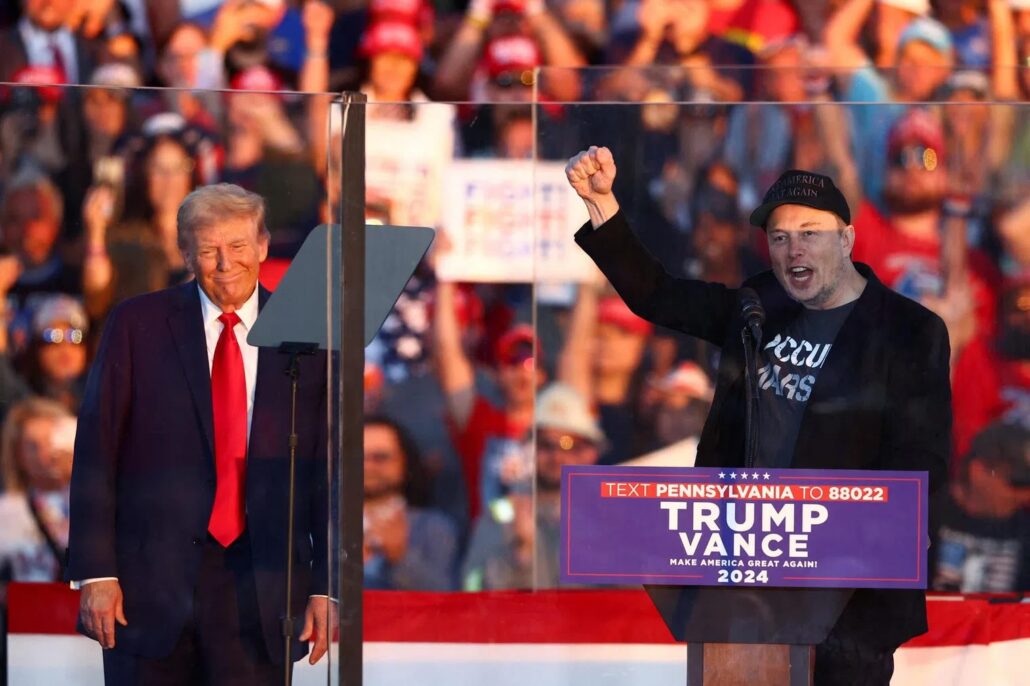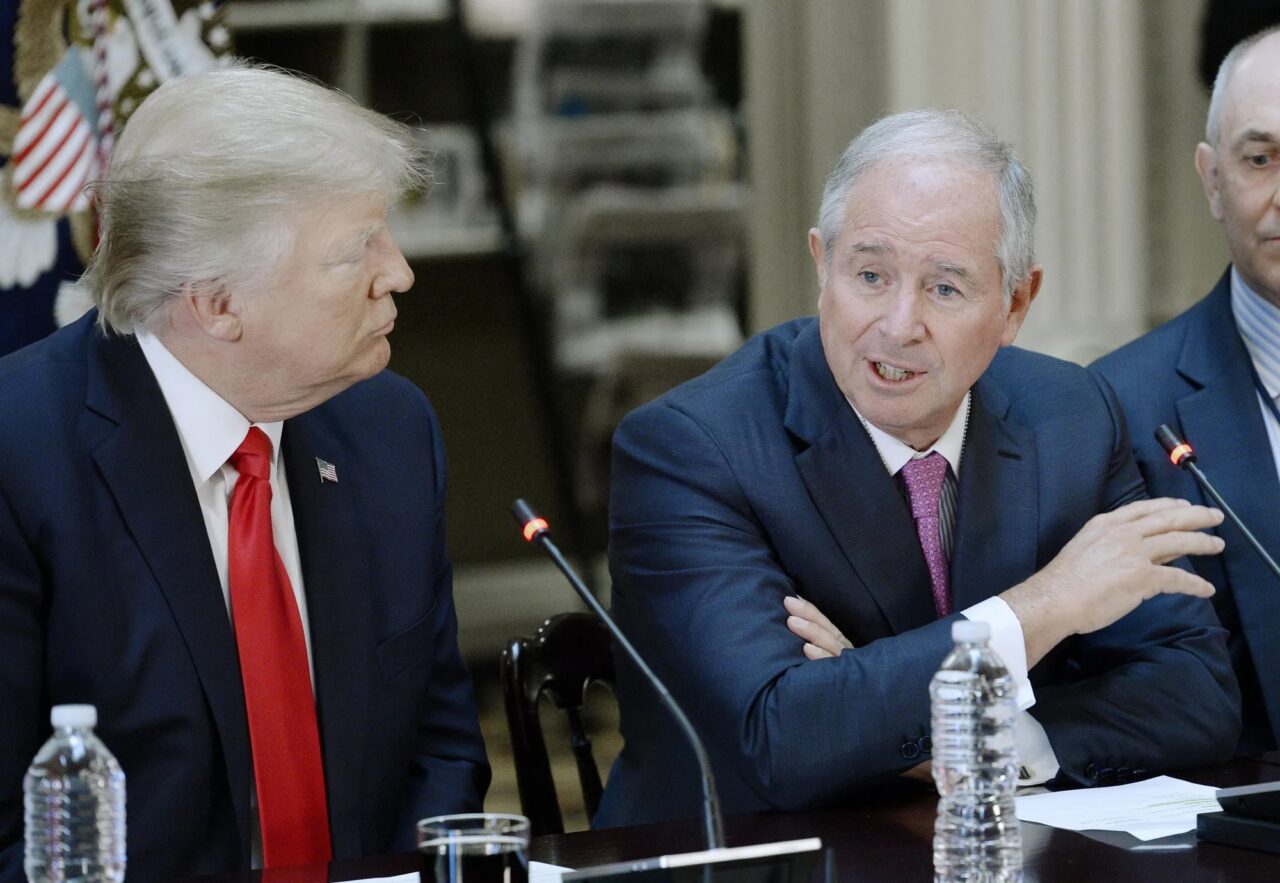What Croesus and Steve Schwarzman Want From Trump
Dear Classmates,
Some of you will recall that I interrupted Steve Schwarzman at our 50th year reunion dinner in 2019, charging fairly that he had dispossessed tens of thousands of Americans out of properties they’d been hoodwinked into thinking they owned. Later that night, our class website carried this discussion about my remonstrance.
I indicated there that I’d been criticizing Schwarzman’s premises and practices since 2017 (in The Washington Monthly, Dissent, and other venues). Bloomberg News and the Yale Daily News reported on my intervention and objections, and, a few months later, I criticized Steve more fully in The New Republic and, just after the 2020 election, in a Salon column, Corporate capital and Trump’s coup: Will business elites take a stand? | Salon.com
You might well think that I’ve had my say about Steve Schwarzman by now, and I do wish that someone else would take up the torch of remonstrance and dissent. Financial Times writer and American editor Edward Luce has done that today (October 23, 2024) in “What Croesus Wants from Trump.” [Ed: because many of you aren’t FT subscribers, we’ve included a copy of the article from the Business Times below so that you can easily read it.]
Luce writes that Schwarzman is an American Croesus, horrifically influential in politics as in finance, like Elon Musk and a few others of today’s billionaires. The American historian Christopher R. Browning shows, in The New York Review of Books, that, like Schwarzman, Musk and Thiel now, wealthy Germans in 1932 thought that they could profit from Hitler’s alarming, sometimes fumbling and erratic demagoguery because they could contain and control it.
Like Luce and Browning, I’m skeptical about that, as I’ve been ever since the 2020 election. And I predict that the next presidential election will prove them wrong two weeks from now, even if Trump loses narrowly to Harris and if his acolytes erupt litigiously, violently, and protractedly, as I fear that they will.
Yale and America have been here before. In 1860, shortly before the Civil War began, Yale students and alumni, including John C. Calhoun, who were Southerners deeply invested in slavery, packed their bags and left New Haven, breaking ranks with Northern classmates who would defend a Union that would abolish slavery.
Some of the nascent Yale Abolitionists were capitalists who profited indirectly from slavery themselves. But they decided that slavery was morally wrong and that they could no longer normalize or rationalize it and that a large Southern slave state’s secession from the Union would be equally disastrous.
What will we decide now about America’s deepening dependency on the casino-like financing, the political demagoguery, and the caste-like inequalities that Trumpism and our Supreme Court have normalized, as we, too, have done in some of our own investments and habits of consumption? Kamala Harris may not become an Abraham Lincoln who’ll combat the worst of it, but the rest of us need to do our part to end the normalization of our own and others’ slavery to corporate finance and marketing, not only by voting against Trump but by reconfiguring our priorities as investors and citizens.
Sincerely,
Jim Sleeper
_______________________
Looking for America? Take a look at jimsleeper.com
* * * * * * *
From Business Times
What Croesus wants from Trump

Rather than turning to Harris, US billionaires are again backing the man they once condemned
Edward Luce
Published Wed, Oct 23, 2024 · 08:00 PM
US politics
WITH a fortune that has more than doubled to US$50 billion since 2021, Steve Schwarzman and his descendants could spend a million dollars a week for the next thousand years and still have change. Yet the Blackstone co-founder is so worried that Democrats will harm the economy that he is all-in for Donald Trump. This is in spite of describing the Jan 6, 2021, assault on the US Capitol “as an affront to the democratic values we hold dear”. Not that dear, it seems.
It would be arbitrary to single out Schwarzman. As Susan Glasser lays out in The New Yorker, many of the billionaires funding Trump are having to eat their words.
Elon Musk, who is offering a million dollars a day between now and Nov 5 in lottery prizes for newly registered voters in Pennsylvania, once urged Trump to “hang up his hat and sail into the sunset.”
Nelson Peltz, a Florida-based hedge fund owner, called Trump a “terrible” human being. “I voted for (Trump) in this past election,” Peltz said on Jan 7, 2021. “Today, I am sorry I did that.” Peltz’s recent fundraisers for Trump are his un-apology. Others include Harold Hamm, the Oklahoma oil billionaire, who told the Financial Times last year that he wanted Trump to end the “division and chaos” and retire. Now, apparently, that chaos is worth the risk.
One or two Maga (Make America Great Again) financiers, notably Timothy Mellon, scion of the Pittsburgh-based dynasty, never wavered on Trump. The rest have made it clear they place higher value on their rate of asset growth than on the future of US democracy.
Yet the Joe Biden years have been kind to America’s super-rich. The S&P 500 is up by more than 50 per cent since he took office. Others have seen their net worth rise at similar rates to Schwarzman. Kamala Harris, who brands herself a “capitalist”, is friendlier to business than Biden. She proposes a 28 per cent capital gains tax, for example, against Biden’s 39.6 per cent.
What is it about Harris that drives billionaires back to a man so many of them have condemned?
Each are billionaires in their own way. Some, such as Musk, want specific deregulatory benefits from Trump. A softer touch on Tesla’s self-driving cars and more federal contracts for his Starlink satellites are obvious upsides. Alone among Trump’s big backers, Musk’s fortune has fallen during the Biden years. He seems to blame that on over-regulating Democrats, not on his own business decisions.
Others, such as Miriam Adelson, widow of the late gaming magnate Sheldon Adelson, think Trump would be better for Israel. Hamm is motivated by Trump’s vow to lift Biden’s freeze on Alaskan Arctic drilling and his export ban on liquefied natural gas. Last May, Trump asked 20 oil and gas executives for a billion dollars in exchange for open season on drilling. The US$14.1 million he has raised since then comes nowhere near that. But it is 10 times what Biden and since then Harris have received from energy donors.
SEE ALSO
- How Elon Musk chose Trump
- How a network of tech billionaires funded the sudden rise of JD Vance
- Trump’s Cabinet could be the wealthiest in modern history
Likewise, crypto enthusiasts, such as Cantor Fitzgerald’s Howard Lutnick, want regulators off Bitcoin’s back. They also want Trump to block the US Federal Reserve from launching a central bank digital currency. Trump has pledged to add Bitcoin to the Fed’s balance sheet.
All billionaires care about the expiry next year of a large chunk of Trump’s 2017 Tax Act. Yet his 21 per cent corporate rate is permanent and the 20 per cent capital gains tax would be unaffected.
The largest hit to the very rich would be a halving of the inheritance tax exemption to US$13.6 million. But there are myriad ways to game estate duty. If Harris won, she would almost certainly have to deal with a Republican Senate, which would block her plans to tax unrealised capital gains. The tax difference in practice between Trump and Harris would be pennies on the dollar.
What, then, is driving the rich back to Trump? The missing piece is psychology. When you are as rich as Croesus, paranoia about losing it all takes hold. Your sense of reality changes.
In 2010, Schwarzman likened former president Barack Obama’s plans to close the so-called carried interest loophole – which allows private equity owners to pay a lower tax rate than their secretaries, in Warren Buffett’s words – to the Nazi invasion of Poland. Neither accounting expertise nor historical knowledge could explain his bizarre analogy.
Other billionaires and many executives have donated to Harris. Her near US$1 billion fundraising in the last quarter alone exceeds Trump’s tally since January 2023. Maybe her donors place more value on democracy. But they could also be motivated by asset protection. The inflationary effect of Trump’s planned global tariff war and his threat to the Fed’s independence would hit everyone’s bottom line.

